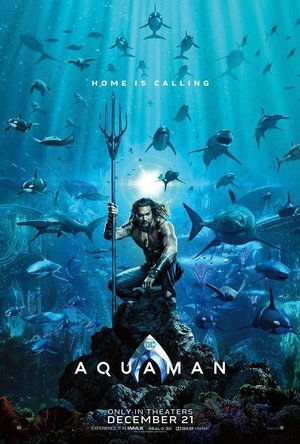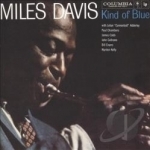
SessionBand Jazz - Volume 1
Music and Entertainment
App
All SessionBand apps now half price for a limited time only! Jamie Cullum: "An extraordinarily...

touchAble Mini
Music and Productivity
App
touchAble is THE controller app for Ableton Live. Countless artists around the globe - from bedroom...

FLUX:FX play - the professional audio multi-effects engine by Adrian Belew
Music and Entertainment
App
***FLUX:FX play is the little brother of FLUX:FX - If you like this app please check out the master...

The Weather Station by The Weather Station
Album Watch
On her fourth (and tellingly self-titled) album as The Weather Station, Tamara Lindeman reinvents,...
alternative folk rock
Ryan Hill (152 KP) rated Aquaman (2018) in Movies
Jun 8, 2019
Instead Wan and the writers behind Aquaman intelligently focus on world-building and following the tried-and-true "heroic journey"; complete with initial rejection of a prophesied role, slow but steady immersion into said role's culture, recognition of the need for growth and change, and eventual assumption of role. It's been seen before and it'll be seen again. But what propels Aquaman ahead of other films like it is the energy that Wan imbues it with. It's goofy without undermining the sincerity of Arthur's journey. It's fast-paced and simple-minded without sacrificing the weight and universality of this particular hero's myth. It's loud and colorful and *full* of CGI everything without reducing itself to an over-commercialized, artless heap of nothingness.
It's a big-ass blockbuster with personality. Momoa has charisma to spare; he owns the physicality and irreverence of this new imagining of the king of the ocean perfectly. Amber Heard is sexy and badass as Mera; something of a victim of a forced romance but also a compelling and strong protagonist in her own right. Patrick Wilson as Oceanmaster (call me....Oceanmaster) is given enough screen-time to develop that he's more than a punching bag for Aquaman; but actually a character with ambitions and a defined, fleshed-out purpose. The origin segment is tightly done and more than enough to set the stage for what is to come. And probably the strongest aspect of this picture, the costuming and world-building, is off the charts. Similar to the enduring fantasy films that precede this (LOTR, Star Wars, Avatar for a few examples) the undersea kingdoms are a place I want to return to. They aren't just my world dressed up with CGI and the occasional costuming flourish; they're entirely foreign and endlessly inventive. Probably a solid third of the film is simply Aquaman, and the audience, being told about this world and shown it by Mera. While that may not be artistically prestigious strategy for engaging audiences, it entertains and fascinates on a "turn off your brain and look at those pretty colors" sort of way. There's a simple glee in seeing sharks ridden like horses or an octopus pounding a war-time set of drums.
I always offer the disclaimer when writing about nerdy films that I love which is this: I am a nerd. While I wasn't particularly attached to Aquaman growing up; his journey, the nature of this sort of film and the cinematic universe he will be growing into are fundamentally important to me, and I like to embrace that bias rather than keep it in check with reduced ratings or "objective" analysis. Whether it be a giant, confusing and chaotic battle between underwater armies or the horrifying descent into "the trench"; you'll always find me looking up at the screen like a little kid. Or moments like Arthur meeting Mera and confronting is past, or taking upon the role of king while wielding the trident; I just love that sort of stuff. I'm a sucker for these beats and this formula; and all signs point to this continuing. So while I may like it more than most; I'd mostly like to say Aquaman still distinguishes itself as a particularly goofy, sprawling, mythic, and metal experience that deserved to be seen on the big-screen, and to be celebrated as the fantasy film it is. It's a great time, and a nice addition to the DC film franchise.
Mick Hucknall recommended Kind of Blue by Miles Davis in Music (curated)

Piano with Songs
Music and Games
App
Piano Free has the largest song catalog of any piano on the app store. With over 1,500 songs to...

AmpliTube MESA/Boogie
Music and Entertainment
App
ROCK OUT AND RECORD WITH THE LEGENDARY REAL-DEAL HIGH-GAIN MESA/BOOGIE® TONE ON YOUR iPHONE OR...

Thirty Year Itch by The Wildhearts
Album
'Ginger gave me two instructions: 'Loud guitars and loud crowd' .I didn't have a choice in either as...

Cost A Cake Pro
Food & Drink and Productivity
App
** NUMBER 1 Food and Drink App in 15 countries including UK and Ireland, Top 10 in 32 countries...

